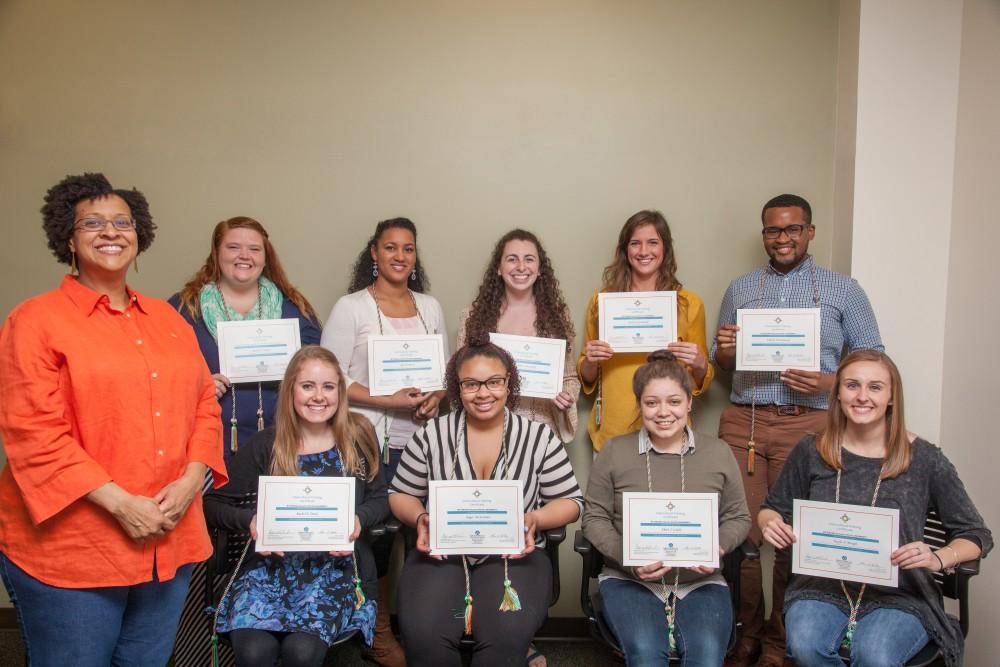Looking through a new lens

GVL / Courtesy – GVSU.edu 2015 ITC Program certificate graduates. Seated left to right is Rachel Powers, Angel McFarland, Abish Israde, and Kayla Mough. Standing left to right is Regina McClinton, Karly Cramer, Anna Moore, Shelby Bruseloff, Shelbi Kruithoff, and Fabian Haywood.
Oct 24, 2016
There’s more to a quality education than simply being able to read and write well. For this reason, Grand Valley State University offers an intercultural training certificate (ITC) program spearheaded by director and associate professor of liberal studies Regina McClinton.
The ITC program aims to help students gain intercultural competency by promoting students’ ability to work in a diverse world, using skills such as cultural sensitivity and intercultural communication skills.
“Everybody is encountering differences, we find people who grew up differently than we did, whose perspectives are different than ours,” McClinton said.
These types of differences helped push McClinton to create the ITC program in the winter of 2010. Becoming the director of ITC was a big change from her place of hire in the biology department at GVSU, but she felt it was worth it.
“What we recognized is that students needed to have a safe place to learn the stuff they don’t know about differences,” she said. “We talk about what I like to call ‘the –isms:’ gender, sex, race.”
One of the main points in this program is stressing the many ways there are to do something. McClinton mentioned the idea of a woman changing her last name after marriage and why there should be no expectation or thought on this being the correct or incorrect thing to do.
“If you’ve not considered that differences exist, that’s when you tend to run into conflict,” McClinton said.
The ITC program involves the completion of five courses, many of which can ‘double-dip’ with other general education or major requirements. The first course of ITC100 is a general education U.S. diversity course that can get students started on the path to completing the program. It also involves taking two electives and a practicum where participants will immerse themselves in an unfamiliar culture, helping them to get the full benefit of the course.
“I need you soaking wet in that other culture,” McClinton said.
One student who completed the ITC program, senior Angel McFarland, chose to complete her practicum through a study abroad program in Oman and Dubai.
“I think my favorite part about it is that it’s not too much of a class,” McFarland said. “It doesn’t feel like a program, it feels like I just volunteered to learn about something new.”
As a dual major in psychology and religious studies with a minor in Middle Eastern studies, McFarland feels like having this knowledge will certainly be beneficial going forward.
“You learn so much, it’s knowledge you take with you every day,” she said.
At the completion of the course, students also complete a capstone project, which includes a research project and a critical thinking project. Some of these assignments have even been enacted in the real world, leading to tangible benefits.
As a program with only five courses, the benefits outweigh any time that the program will add onto student’s schedules, if any, according to both McClinton and McFarland.
“There is not (a) career that does not benefit from this,” McClinton said. “You’re going to have a co-worker or a boss or someone that sees the world differently than you. The world is changing.”























